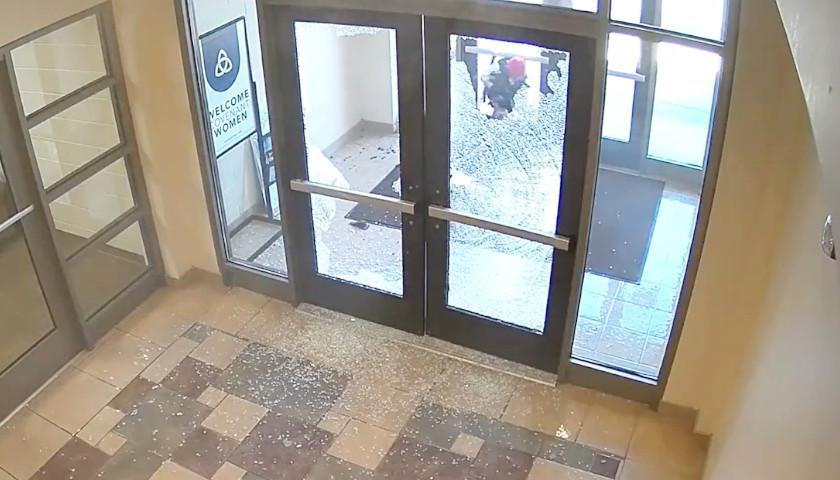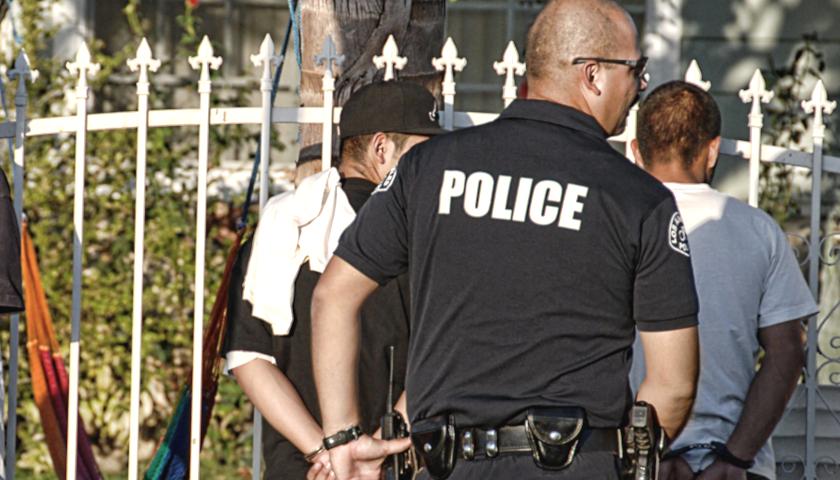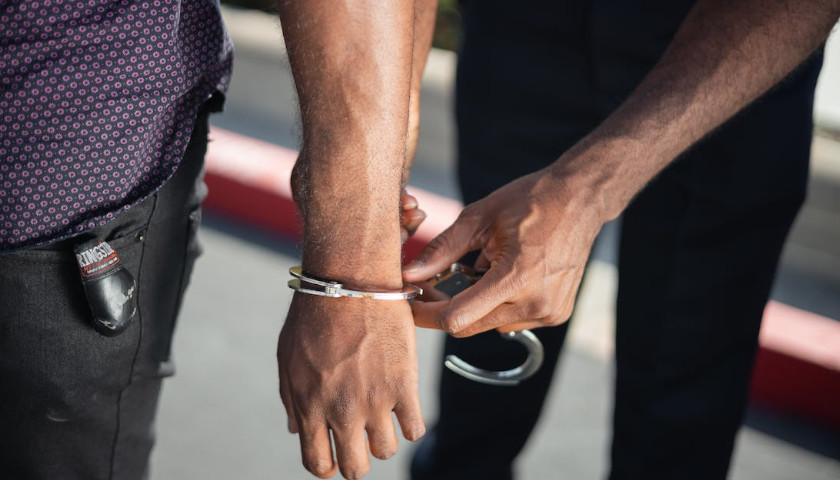99.7 WTN afternoon radio host Brian Wilson on Friday unveiled portions of recorded interviews of Metro Nashville Police Department investigators revealing details and asking questions about Covenant School shooter Audrey Elizabeth Hale to her parents.
99.7 WTN radio host Brian Wilson: As you know, this week I have been spending a great deal of time on the Covenant story because I have obtained certain documents that provide a unique window into the Metro Police Department investigation of the Covenant shooting that claimed the lives of six people last year on March 27.
Much of what I was able to learn came from the transcript of a two-hour-and-13-minute interview with the shooter’s parents some four months after the shooting.
Now in some cases the investigators are informing the parents of things that they had learned in their investigation, and in some cases, they were asking the parents questions designed to fill in the missing pieces to the puzzle.
Now for the first time, you will hear excerpts from that interview. In the interest of full disclosure the clips have been edited for time by me, but I’ve taken great care not to change the meaning of anything that was said that day.
We start with a question asked that day that the Hales first learned that their daughter was interested in changing her gender. She approached her parents while they were sitting on the screened-in porch in front of their home.
[recording starts]
Norma Hale: We were sitting on the screened in porch. She evidently had done some research on it.
MNPD Investigator 1: She seemed more knowledgeable about it than you thought she would be.
Norma Hale: But–
Ronald Hale: Once again–
Norma Hale: Once again–
Ronald Hale: [indistinct] a child-like view of it. She figured she could, like, go to the hospital and just get it done.
Norma Hale: She said, “Well, I was just going to use your health insurance cards.” [I said], “Audrey, you can’t do that, you’re over 25.”
Ronald Hale: Well–
MNPD Investigator 1: So you could tell she–
Ronald Hale: She didn’t know what was involved in it either.
MNPD Investigator 1: Right.
Ronald Hale: She thought she could have an operation.
Norma Hale: We had to give her education on that but I was not gonna–I was not gonna judge her because I didn’t want to lose her and I knew this really wasn’t about that.
[recording ends]
Wilson: By this time detectives had already read through the 20 journals, journals that dated back to the shooter’s time and middle school. They had already talked with many of the doctors and therapists who had treated the shooter over the years, and they had been told that at times the shooter fantasized about killing others.
[recording starts]
MNPD Investigator 1: Did she have homicidal ideations ever? Did she ever express to you guys about having thoughts of homicide? Did–did any– through any of the treatments she went through, any of the therapists if you’re able to say so, um, did they ever express to you guys that she was having homicidal ideations or anything like that?
Ronald Hale: None of her therapists ever felt that they had, like, a duty to warn anybody…
Norma Hale: Only when she had suicidal ideation–
Ronald Hale:–her wellbeing.
Norma Hale: Right, but–
MNPD Investigator 1: I saw some things to where she felt close to, like, she did the Columbine tapes. So she saw the documentary for the Columbine shooting. And she said something along the lines of how she felt close to them, how she could empathize with them and how they felt. And she went and bought the tapes and the books. So I was curious if you guys ever heard about this, that they ever mentioned, if she ever mentioned these things to you guys at all?
Norma Hale: It was in her writings?
MNPD Investigator 1: She was speaking with a physician or a therapist or someone and said those things. I believe that she bought them off Amazon.
Norma Hale: She went to talk to the guy, you know, she talked to him by herself. Then I would talk to him.
MNPD Investigator 1: In the situation where the–she bought the Columbine tapes and the books and things of that nature, I think it must have been at Vanderbilt because after they were speaking with you. So I didn’t know if you were there with them or if it was–she said that to them and then talked to you after is what we kind of–
Norma Hale: I didn’t know [indistinct]
MNPD Investigator 1: That’s kind of what I figured. Did you guys know about her journals or you didn’t?
Norma Hale: Sure. I mean–
MNPD Investigator 1: Did you know the sheer amount of journals that she had?
Norma Hale: No.
MNPD Investigator 1: I was wondering if she’s–if you guys ever saw her writings. Yeah. Okay,
Ronald Hale:–saw her writing.
MNPD Investigator 1: Okay. Okay, that’s–because–there were a lot of things in there that I’m certain you guys have no clue about to begin with.
Norma Hale: I never read any of them.
MNPD Investigator 1: Right, and I didn’t know if she expressed–it’s just kind of like the thing we have to ask just because–
Norma Hale: I just figured this is part of the therapeutic–
MNPD Investigator 1: I see.
Norma Hale: So I thought this was part of the therapeutic process. This was part of her therapy. I never had any desire to go in and read or–that was just part of how she was doing her therapy.
[recording ends]
Wilson: And one of the homicidal ideations that she had written about was about killing her father.
[recording starts]
MNPD Investigator 1: One of the things that are plain… she had a schedule. On one schedule, she wants to wake up early in the morning to slash dad’s tires before the incident happened. She wanted to create a diversion after the incident to make it out of the school but to come back and harm dad, I believe kill you is what she–
MNPD Investigator 2: We’ll be open, it was, she wanted to kill you.
MNPD Investigator 1: And she wrote about it on more than one occasion… Getting more sensitive about it, she had incidents to where she will record herself and just talk in front of the camera for hours and hours on multiple times in her bedroom.
We can hear people in the house. There was times where she would walk out of the room and record herself.
You would be in a chair, and she will come up behind you in like, act like she was going to harm you and then go back to her room.
She did things on more than one occasion to allude that she, that she, you know, had rage towards you or anger towards you and wanted to harm you. There was just an ample–it was just a large amount of anger towards you. That when you’re reading it, you feel like there has to be something there because there was so much particularly towards her father.
MNPD Investigator 2: And we may never–we may never know. I mean, we understand that as investigators and we’re just trying to determine a source of the hatred and a source of the rage ultimately towards you, Mr. Hale, and then that turning into what occurred.
Norma Hale: Never any kind of rage or any, you know. I was like, I mean, I’d correct her sometimes, like “Audrey, that’s inappropriate.”
MNPD Investigator 2: Mr. Hale, we’re not–we’re not saying any of this is your fault. We’re not trying to say–
MNPD Investigator 1: Again, we’re not trying to blame you or anyone else. It’s just this is what we saw and we wanted to lay it in front of you.
[recording ends]
Wilson also played a clip of investigators asking Ronald Hale why he immediately asked police upon arriving to meet him if it was his daughter who perpetrated the massacre at the Covenant School.
Wilson: It became clear during the interview that her parents were completely unaware of any of the things their daughter had been planning and yet on the day of the shooting, her father seemed to have put something together.
When police first arrived at their home to search Audrey’s bedroom, they stopped her father in the front yard. He was about to leave and go out and search for his daughter. And he asked detectives an interesting question.
[recording starts]
Ronald Hale: This is like some parallel interior world that we never knew about. I mean, [indistinct].
Norma Hale: Yeah, never.
Ronald Hale: [indistinct]
Norma Hale: Yeah, like this, this is a disturbance. There really wasn’t any indication of this at all. The day that this happened, I was texting her and I said, “I want you to come home from Nikki’s house, because we’re really upset about what’s happened at Covenant.”
And I said, “Come home.” I was texting her.
Ronald Hale: I was driving out to Nikki’s, but the officer stopped me.
MNPD Investigator 2: What made you make that statement to the officer [indistinct]? Do you remember?
“Was it my daughter [indistinct] at Covenant?”
Do you remember that statement?
Ronald Hale: I did ask that yes.
MNPD Investigator 2: What–
Ronald Hale: I didn’t believe…
MNPD Investigator 2: I guess, what made you know, or how did you know?
Ronald Hale: The law enforcement response…
Norma Hale: At our house.
Ronald Hale: At our house.
MNPD Investigator 1: Because it appeared–I was there when–I was behind SWAT or there while some of that happened, so–and I was there when you was like, as soon as they saw you, you asked, “Was that my daughter that was at the school?”
And then–then again, I know it’s y’all’s daughter, and you guys know her better than anyone. But–
Norma Hale: I thought we did.
[recording ends]
Wilson: These clips are obviously a small part of the two-hour-and-13-minute interview, and, remember, it was four months after the shooting. The documents in my possession provide… some insight as to where the investigation was at that time. But it’s clear the investigators were zeroing in on other shooter’s interactions with her many doctors and therapists in an effort to determine how many of them had picked up on her desire to carry out a school shooting.
Wilson referenced original reporting by The Tennessee Star on documents The Star has obtained related to the investigation.
The Star previously reported that Audrey Hale was a Vanderbilt University Medical Center mental health patient for 22 years and that Audrey Hale claimed she called the suicide prevention helpline five times and denied being bipolar.
Watch the segment:
– – –
Matthew Giffin is a reporter at The Tennessee Star and The Star News Network. Follow Matthew on X/Twitter.
Image “Shattered Glass Doors” by Metro Nashville Police Department.





